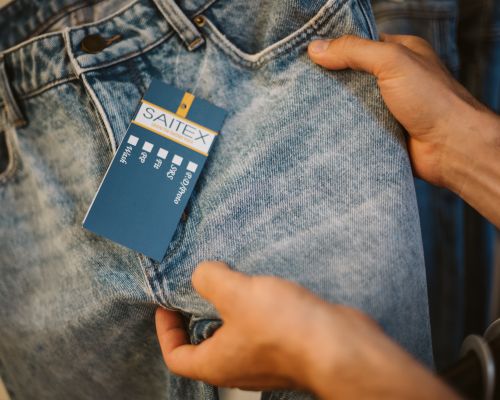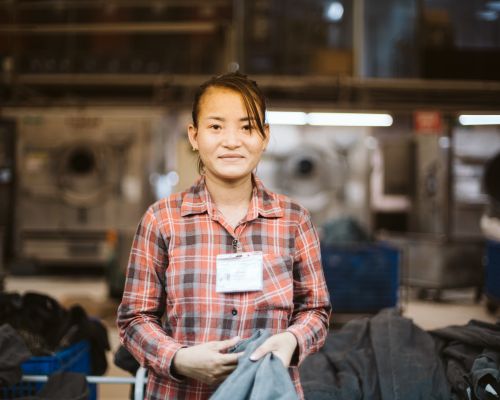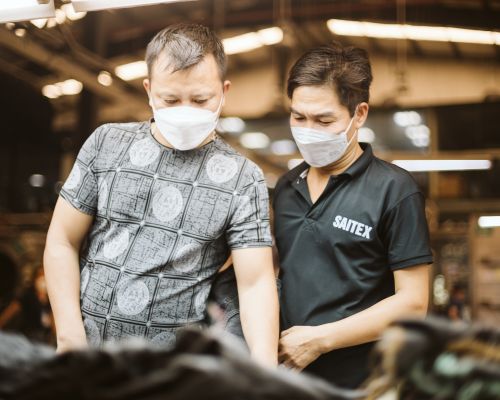GOTS Case Study:
Saitex
A Sustainable Vision for Denim Manufacturing
Saitex, headquartered in Vietnam, has emerged as a pivotal force in the global denim industry since its establishment in 2012. With the capacity to produce an impressive 20,000 pairs of jeans per day, the company's true distinction lies in its innovative approaches to denim manufacturing and a profound commitment to social equity. Amidst the fashion industry's often contentious sustainability and environmental concerns, Saitex's narrative takes centre stage, focusing on groundbreaking strategies and unwavering dedication to its employees and the local community.

A Green Beacon in Denim Manufacturing
Saitex's LEED-certified facility redefines the standard for clean water practices. They recycle an astounding 98% of the water used, a remarkable feat in an industry notorious for water wastage. Traditional denim manufacturers waste up to 1,500 litres of water per pair of jeans with inefficient practices and outdated technology. In contrast, Saitex employs efficient jet washing machines, losing just 0.4 litres of water to evaporation. Additionally, on-site rainwater collection pools minimise water consumption impact. Saitex's five-step filtration process purifies water, rendering it so clean that it's drinkable.
Green Energy
Saitex is committed to renewable energy resources, particularly solar power, a dedication that has reduced annual energy usage by 5.3 million kilowatt-hours and cut CO2 emissions by nearly 80 percent. They've taken a page from the past, air drying jeans with recycled factory machinery air, a sustainable alternative to the inefficient traditional dryers that used excessive electricity. To offset remaining emissions, they plant trees, contributing to a greener world.
Clean Waste: All wastewater treatment plants create a toxic byproduct called sludge. But at SAITEX, the sludge is extracted and shipped to a nearby brick factory. Mixed with concrete, the toxic material can no longer leech on the environment, and the resulting bricks are used to build affordable homes for the people in need.


Empowering Communities Through Responsible Business Practises
Saitex firmly believes in harnessing the power of business as a force for good, aiming to create a healthier, more equitable world. Their endeavours include:
Empowering the Next Generation: Saitex supports three orphanages housing 800 children. These children are offered training and employment opportunities at Saitex when they turn 18.
Food for Good
In collaboration with Everlane, Saitex has implemented hydroponic and clean farming systems, providing healthy food for the community while generating jobs that promote social interaction and employment with equal pay for vulnerable groups.
Supporting Gender Equality: With 58% of their workforce comprising women, Saitex actively promotes gender equality, with many women holding key positions within the company.
One-of-a-Kind Production Line: The Rekut production line is a platform for differently-abled individuals to receive training and support for sustainable employment, with an ambitious goal of creating 1,000 jobs and avoiding 1,000,000 kg of landfill waste by 2025.


Saitex's vision for sustainability and social equity is about more than just denim; it's about shaping a future where business serves as a force for good. Their innovations in water and energy conservation, waste management, and commitment to supporting communities demonstrate that it's possible to transform even the most polluting industries into champions of sustainability and social equity. Saitex invites us to see abilities, not disabilities, and to believe in a world where affordable, clean food is a basic human right, all while leaving a greener, cleaner footprint on the planet.

